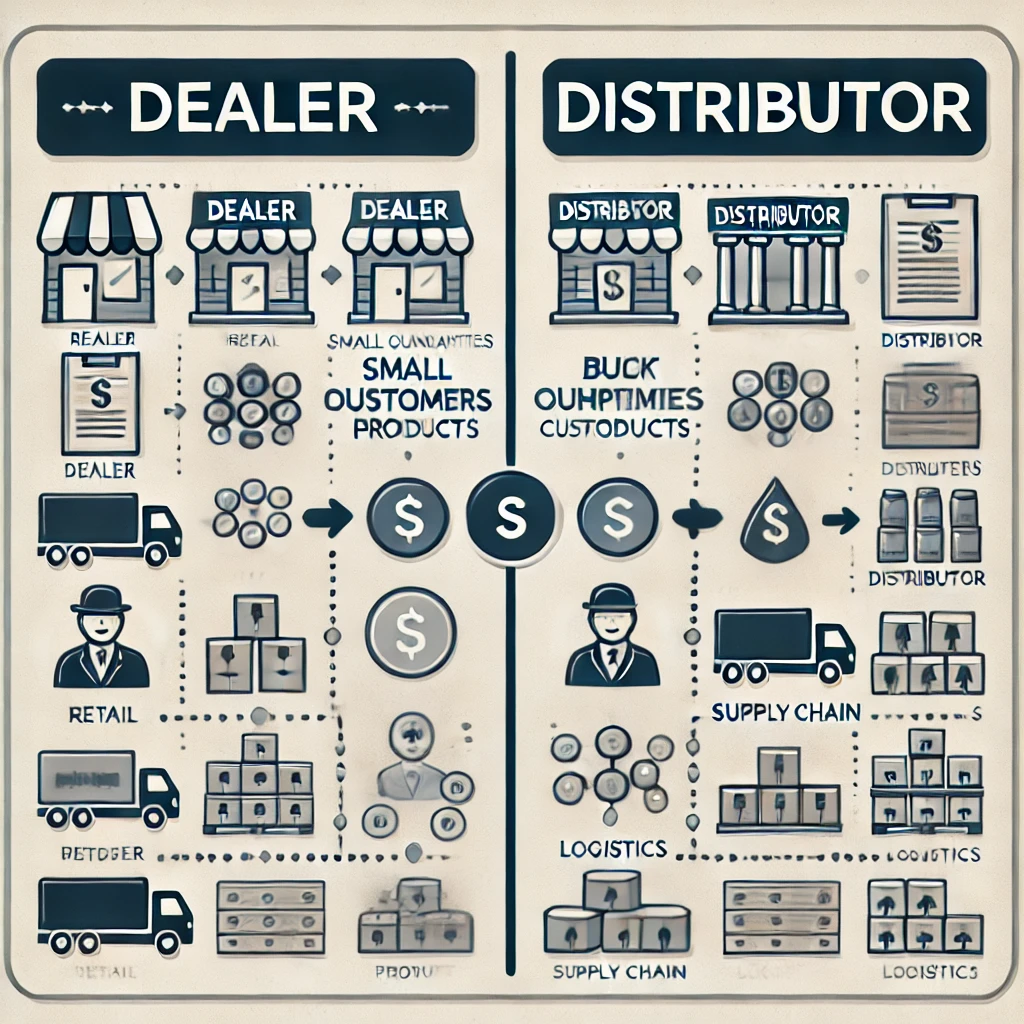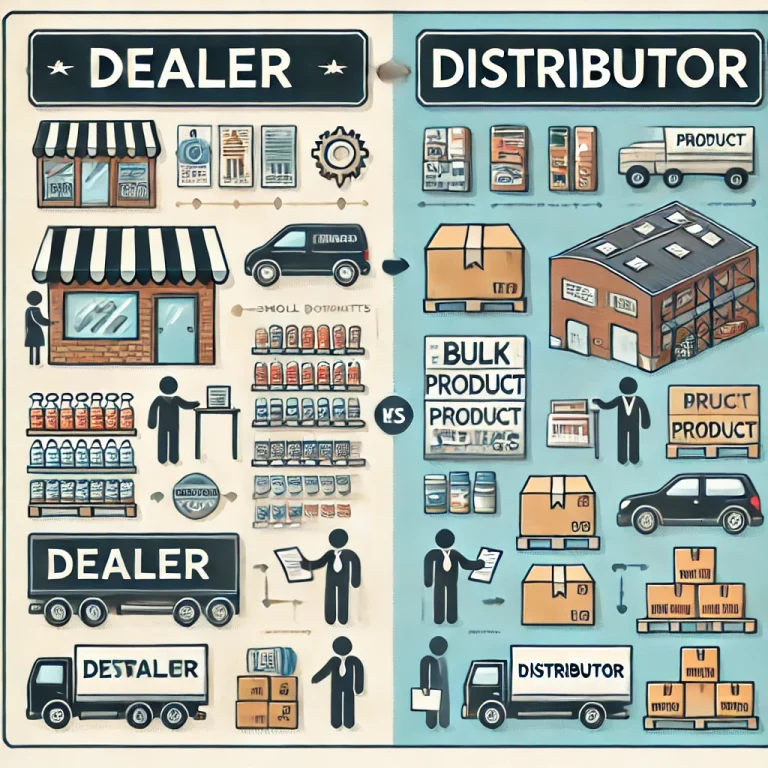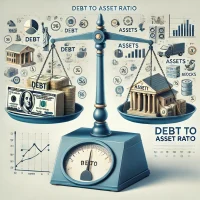Any business supply chain must distinguish between a dealer and a distributor. Dealers and distributors play a significant role in the supply chain because they are the links between manufacturers and consumers. However, their functions and responsibilities are different.
Understanding the difference between a dealer and a distributor is very important for businesses that involve sales and distribution networks. Both terms are often used in the same context, but there is a difference in what they do in the supply chain. This article discusses what a dealer and a distributor are, their role, and key differences, which can help businesses to choose the best distribution strategy.
Who is a Dealer?
A dealer is an entity or an individual that buys goods from a distributor or wholesaler and sells them directly to the consumers. Dealers normally operate at the local or regional level and sell products to end-users face-to-face.
Role of Dealer
The dealer’s role extends beyond just selling products to consumers. They handle customer queries, provide after-sales support, and sometimes even manage product installation services. Here’s a deeper look into the key roles of dealers:
- Direct Customer Interaction: Dealers are customers’ primary point of contact, helping them make informed decisions about products.
- Sales and Marketing: Dealers market the product, often influencing customer choices through promotional strategies and localized advertising.
- Customer Service and Support: Dealers often provide after-sales support, which includes handling complaints, warranty issues, and product returns.

Who is a Distributor?
Distributors play the role of a middleman between manufacturers and dealers. They buy in bulk from manufacturers and sell the products to dealers. Distributors function on a bigger level than dealers, catering to one or more regions. They rarely interact with the end-user, unlike dealers.
Functions of Distributor
The distributor plays an extensive role in managing logistics and ensuring that products reach dealers efficiently. Here are the main functions of distributors:
- Bulk Purchase and Storage: Distributors buy products in large quantities directly from manufacturers, which allows them to negotiate better prices.
- Logistics and Distribution: Distributors are responsible for storing and transporting goods, ensuring timely deliveries to dealers.
- Regional Coverage: Distributors often serve specific territories, providing products to dealers within their assigned region, which helps streamline distribution.
Difference Between Dealer and Distributor
Understanding the difference between a dealer and a distributor can help businesses optimize their distribution channels. Below is a detailed comparison:
| Aspect | Dealer | Distributor |
|---|---|---|
| Role in Supply Chain | Directly interacts with customers and sells products. | Acts as a link between manufacturer and dealer. |
| Purchase Volume | Purchases smaller quantities for direct sales. | Buys in bulk directly from manufacturers. |
| Customer Interaction | High – Deals directly with end consumers. | Low – Rarely interacts with end consumers. |
| Logistics Responsibility | Limited – Mostly focused on retail locations. | High – Responsible for regional transportation and warehousing. |
| Revenue Model | Generates revenue through retail sales to consumers. | Earns revenue through sales to dealers. |
In simple words, there are a number of major differences between a dealer and a distributor in terms of their role and responsibility, the way they interact, and their roles in the supply chain. Dealers provide an end-consumer sale coupled with customer service, and on the other hand, distributors handle logistics and perform wholesale transactions with dealers. Thus, manufacturers can better optimize a distribution strategy to achieve deeper market penetration by understanding these roles.
Dealer and Distributor FAQs
What is the main difference between a dealer and a distributor?
The primary difference is that dealers sell directly to end consumers, while distributors act as intermediaries between manufacturers and dealers.
Can a business be both a dealer and a distributor?
Yes, some businesses may function as both, especially in smaller markets where companies perform multiple roles to meet demand.
What are the benefits of using a distributor?
Distributors enable large-scale distribution, reduce logistics burdens on manufacturers, and ensure efficient regional coverage.
Are dealers and distributors compensated differently?
Yes, dealers make profits through retail sales, while distributors typically earn by selling in bulk to dealers.
Do distributors interact with end consumers?
Generally, no. Distributors primarily deal with dealers and rarely engage directly with end consumers.


